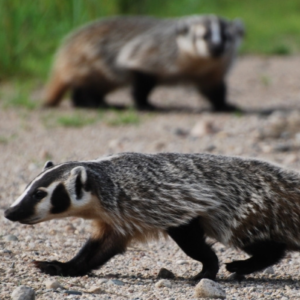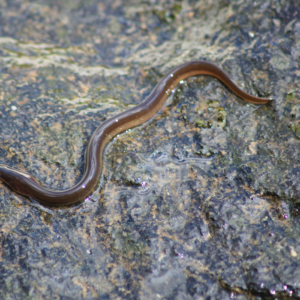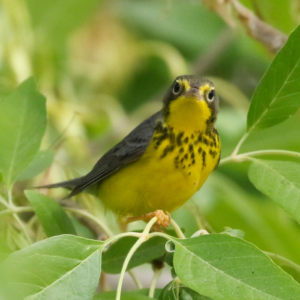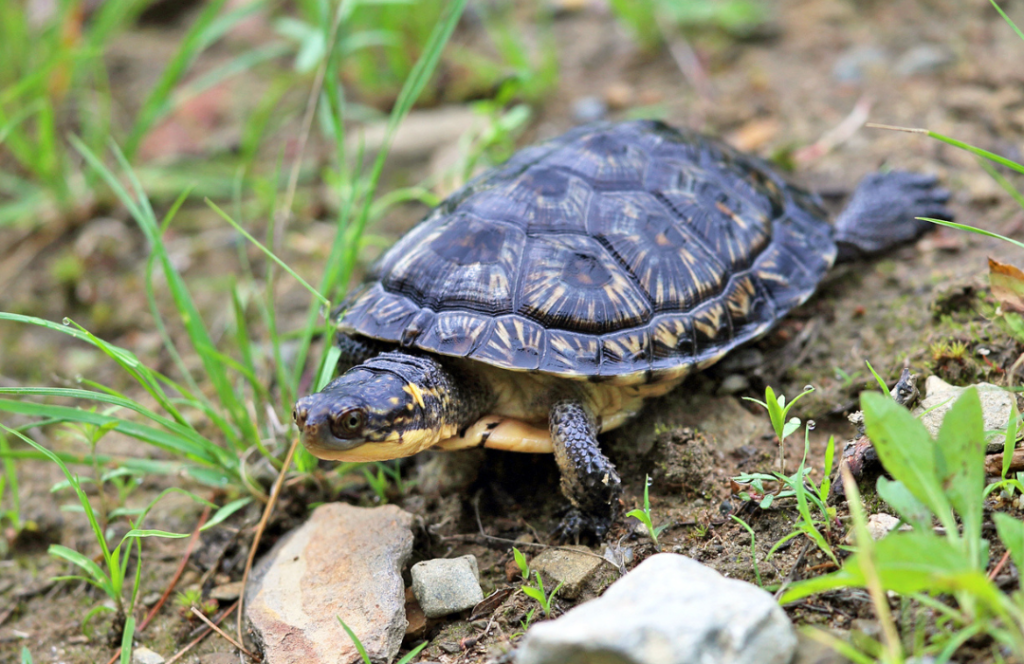
Blandings Turtle Nature Canada
The turtle that loves to smile and can walk for a while! This turtle’s travels can take it across roads—putting it in danger of being hit by vehicles. Save endangered species today by joining one of our campaigns! Help End the Extinction
Vital Signs
- Common name: Blanding’s Turtle
- Latin name: Emydoidea blandingii
- Conservation Status: Endangered
- Range: Ontario, Quebec, Nova Scotia
- Lifespan: 75 years or more
- Size: Shell size up to 27 cm in length
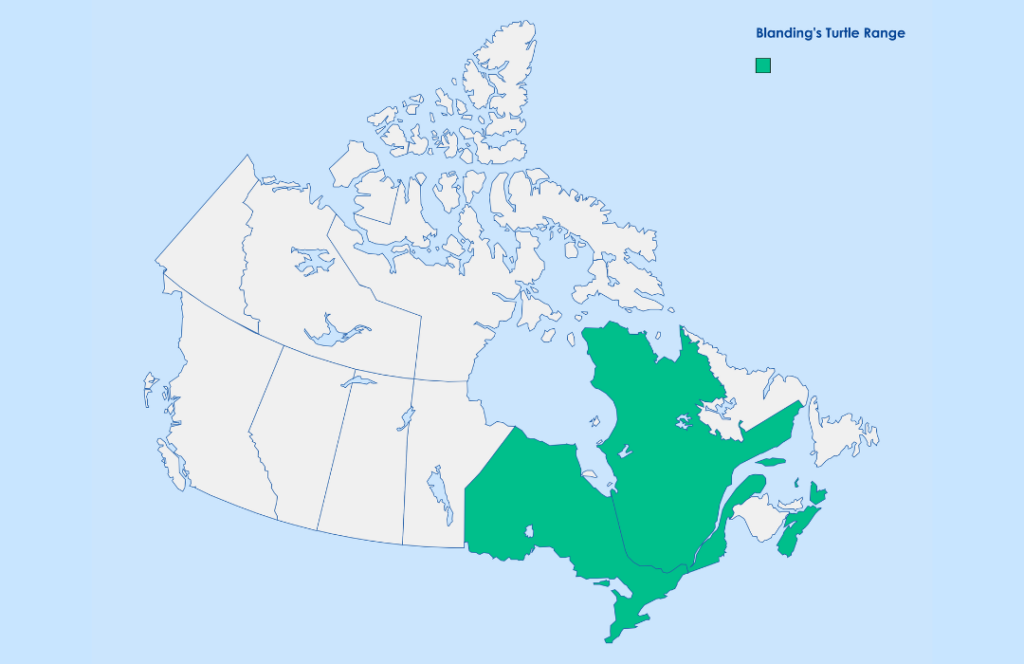
The bright yellow throat and pointed facial features of the Blanding’s Turtle give it an unmistakable look among Canada’s rivers, lakes and ponds. The carapace (top shell) is dark brown or black with yellow spots. The plastron (bottom shell) is bright yellow.
Blanding’s Turtle Facts
- Thanks to its curved mouth, this turtle always appears to be smiling
- Some can fully close their shell after retracting their head and limbs
- Females can keep having babies until they’re 75 years old!
- Nova Scotia populations like dark water, but Quebec and Ontario populations like clear water
- Though they’re an aquatic species, they spend a lot of time on land travelling to find nesting sites and mates—and may travel several hundred metres while doing so
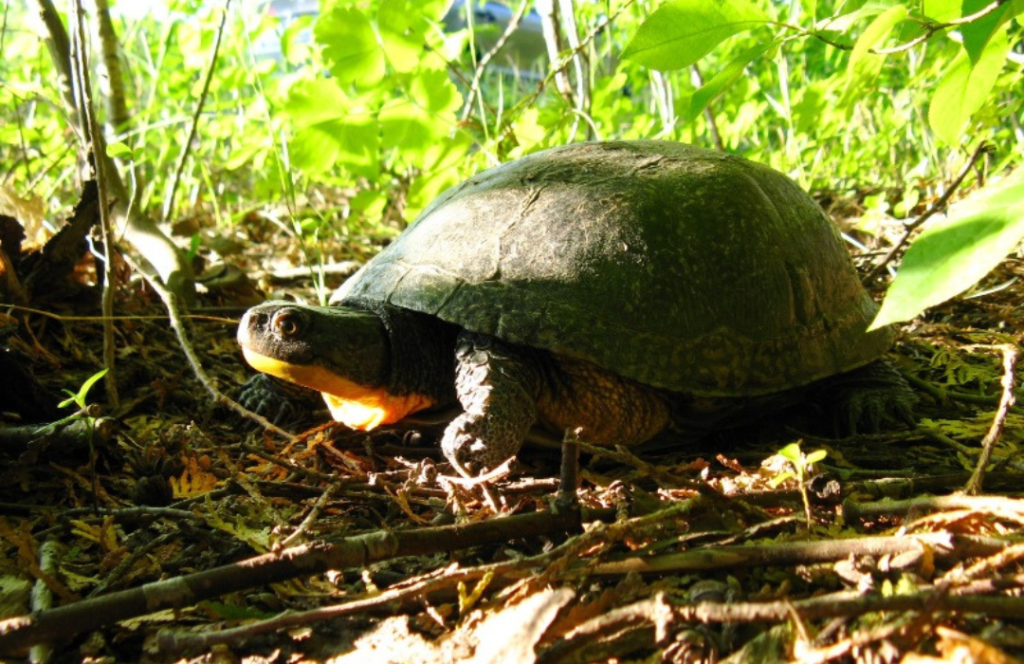
Threats
The Blanding’s Turtle’s biggest threat is increased road and rail development. The extra traffic leads to higher chances that turtles will be hit by vehicles. This can cause severe injury, death, or destruction of nests near the road. Another threat is habitat loss caused by development done on or changes made to wetlands.
Human interference has a direct impact on the Blanding’s Turtle—individuals are collected in the wild for the pet trade.
What’s Being Done
The Blanding’s Turtle is protected under the federal Species at Risk Act. There is also a recovery strategy that aims to sustain current populations.
Since there are still many unknowns about this species, more research needs to be done to find ways to help this species. The Ontario Multi-species Turtle at Risk Recovery Team is assessing threats to Blanding’s Turtle, and the Toronto Zoo is performing surveys to estimate population sizes and identify habitats.

Canada has committed to the goal of protecting 30% of lands, ocean, and freshwater in Canada by 2030. This goal will help protect ecosystems, restore habitats, and fight climate change. All these things are a step in protecting Canada’s at-risk animals—so let’s hold the federal government to their promise.
How to Help
- Help Out: Do what you can to protect waterways and habitats the Blanding’s Turtle calls home, which includes joining our National Marine Conservation Area campaign!
- Be Careful When Purchasing Pets: Ask stores where their turtles come from and how they’re raised. Never take a turtle from the wild as a pet.
- Watch For Turtles: If you find a turtle on a busy path or road and believe it’s in danger, move it to a safe location nearby. Lift the turtle by the side edges of its carapace and move it in the direction it is traveling.
- Know Who Can Help: If you find an injured Blanding’s Turtle, get in contact with your local wildlife rescue or the Ontario Turtle Conservation Center.
- Learn: Stay informed about endangered species by signing up for Nature Canada’s monthly e-newsletter.
- Find out more: Help us end the extinction by taking action for nature today—visit conservation websites like Nature Canada or join one of our campaigns!
RESOURCES
- COSEWIC – Assessment and Status Report
- Ontario – Blanding’s Turtle
- SARA – Species at Risk Public Registry (Great Lakes/St. Lawrence Population)
- Toronto Zoo – Adopt-A-Pond Program
Want to Help?
Hello nature life wilderness is the world’s envy. It’s our duty to keep our true north strong and green.
Donate